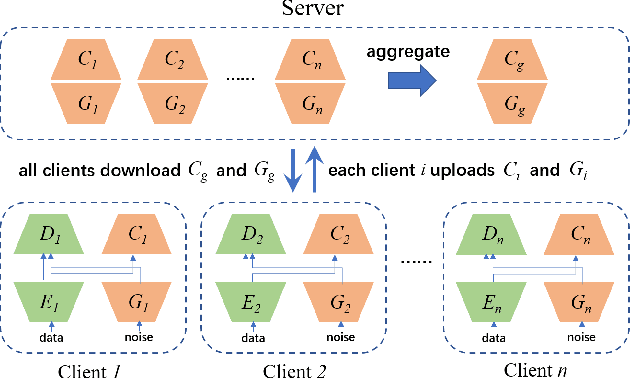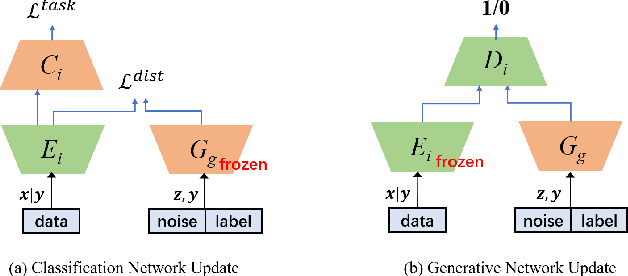FedCG: Leverage Conditional GAN for Protecting Privacy and Maintaining Competitive Performance in Federated Learning
Paper and Code
Nov 16, 2021



Federated learning (FL) aims to protect data privacy by enabling clients to collaboratively build machine learning models without sharing their private data. However, recent works demonstrate that FL is vulnerable to gradient-based data recovery attacks. Varieties of privacy-preserving technologies have been leveraged to further enhance the privacy of FL. Nonetheless, they either are computational or communication expensive (e.g., homomorphic encryption) or suffer from precision loss (e.g., differential privacy). In this work, we propose \textsc{FedCG}, a novel \underline{fed}erated learning method that leverages \underline{c}onditional \underline{g}enerative adversarial networks to achieve high-level privacy protection while still maintaining competitive model performance. More specifically, \textsc{FedCG} decomposes each client's local network into a private extractor and a public classifier and keeps the extractor local to protect privacy. Instead of exposing extractors which is the culprit of privacy leakage, \textsc{FedCG} shares clients' generators with the server for aggregating common knowledge aiming to enhance the performance of clients' local networks. Extensive experiments demonstrate that \textsc{FedCG} can achieve competitive model performance compared with baseline FL methods, and numerical privacy analysis shows that \textsc{FedCG} has high-level privacy-preserving capability.
 Add to Chrome
Add to Chrome Add to Firefox
Add to Firefox Add to Edge
Add to Edge